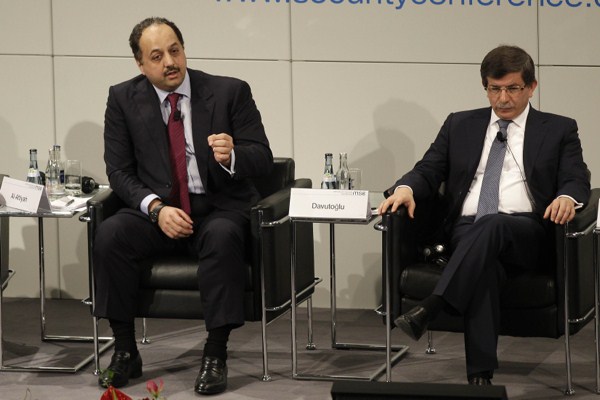At the end of Turkish President Recep Tayyip Erdogan’s visit to Doha last week, Qatar’s young emir, Sheikh Tamim bin Hamad al-Thani, drove Erdogan to the airport in his own car. The gesture, perhaps, was meant to signal Turkey and Qatar's close ties. But one couldn’t help thinking it was also a sign of the course they’ve charted, often together, over the past three years as the chief sponsors of Islamist political parties and movements across the Middle East.
Both countries’ calculations, however, could be changing. On the heels of Erdogan’s trip to Doha, the Guardian reported that Qatar had agreed to kick out exiled leaders of Egypt's Muslim Brotherhood, who had fled to Doha after the 2013 coup that toppled Egyptian President Mohammed Morsi, “as one of the conditions of an agreement forced on the wealthy Gulf state by Saudi Arabia, the United Arab Emirates” and other Gulf neighbors late last year in Riyadh.
The deal was designed to ease tensions among members of the Gulf Cooperation Council, many of whom blamed Qatar for its support of Egypt’s Brotherhood and other Islamists movements, including militias in Libya fighting against former soldiers of Moammar Gadhafi and members of his ruling elite, which are backed by the Emirates. The conservative Gulf monarchs, with the exception of the Thanis in Qatar, see the Brotherhood as an existential threat; Saudi Arabia designated the group a terrorist organization in March as tensions boiled between Qatar and its Gulf neighbors.

